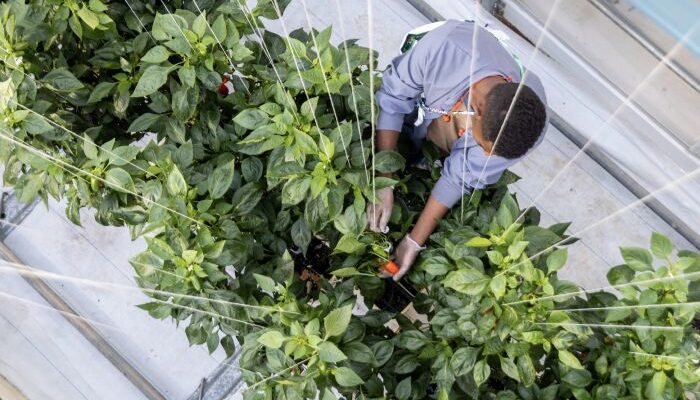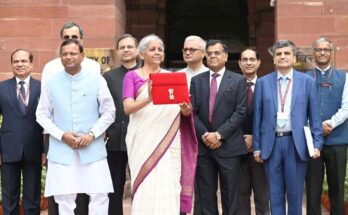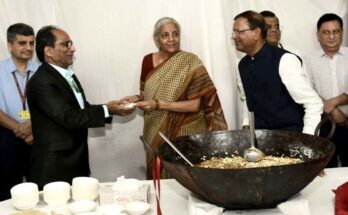Agriculture forms the backbone of the Indian economy, employing over 50 per cent of the nation’s workforce. However, the sector is grappling with significant challenges posed by climate change, which impacts crop yields, water availability, and overall agricultural productivity. In response, educational institutions are updating agricultural curriculums to incorporate climate change adaptation and sustainability. This transformation aims to equip future farmers and agronomists with the knowledge and skills necessary to mitigate these impacts and promote sustainable farming practices.
Integrating climate change and sustainability impacts and solutions into agricultural studies is essential. Universities and colleges are embedding climate science into their curriculums to help students understand the effects of changing weather patterns, temperature variations, and extreme weather events on agriculture. These updates include modules on climate modelling, data analytics, and forecasting, enabling students to predict and respond effectively to climatic shifts.
You may also like to read: Crystal Crop Protection launches INR 33 lakh scholarship program for girl students in agriculture
In the face of these climate challenges, the Government of India has launched several initiatives to combat climate change and promote sustainability. Some key government efforts in this area are:
- National Action Plan on Climate Change (NAPCC) addresses climate change through eight national missions focused on sustainable development. Its core missions are solar energy, energy efficiency, sustainable agriculture, water conservation, and the Himalayan ecosystem.
- Pradhan Mantri Krishi Sinchai Yojana (PMKSY): Aims to ensure ‘More Crop Per Drop’ by promoting efficient water management practices.
- National Solar Mission: Encourages solar energy use to reduce fossil fuel dependence and greenhouse gas (GHG) emissions.
- Green India Mission: Aims to increase forest and tree cover to restore ecosystems and promote biodiversity conservation and ecosystem services.
- National Water Mission: The objective is to increase water use efficiency by 20 per cent and encourage sustainable water management across sectors.
- FAME India Scheme: Promotes electric and hybrid vehicle adoption to cut vehicular emissions.
Sustainability now lies at the core of the revamped agricultural curriculums. Educational institutions are teaching students sustainable farming practices that minimise environmental impact and ensure long-term productivity. These practices include organic farming, integrated pest management, agroforestry, and the use of renewable energy sources. The curriculum also highlights the importance of maintaining soil health through crop rotation, reduced tillage, and the use of organic fertilisers.
You may also like to read: ICAR-CMFRI identifies two new species of needlefish from Indian waters
Modern agricultural curriculums are also incorporating the latest technological advancements, such as precision farming, remote sensing, and Geographic Information Systems (GIS). These technologies assist in optimising resource use, monitoring crop health, and improving yield predictions. By mastering these methods, students can help develop farming systems that are both productive and environmentally friendly.
Promoting Sustainable Farming Practices
Soil Health and Water Conservation
Soil Degradation: Unsustainable farming practices have led to soil degradation, which is exacerbated by climate change. Teaching soil health management is crucial to ensure long-term agricultural productivity.
Water Scarcity: Efficient water use is vital as water resources become scarcer. Educating future farmers on water conservation techniques can help mitigate the impacts of drought and ensure sustainable water use.
Biodiversity and Crop Resilience
Diversified Cropping Systems: Encouraging crop diversification can enhance resilience to climate change. By introducing students to diverse cropping systems, they can learn to reduce risk and increase agricultural sustainability.
Climate-Resilient Varieties: Developing and adopting climate-resilient crop varieties can safeguard against extreme weather and changing growing conditions.
Leveraging Technology and Innovation
Precision Agriculture: Precision farming technologies such as GPS and satellite imagery, help optimise resource use and improve crop management. Educating students on these technologies can lead to more efficient and sustainable farming practices.
You may also like to read: New report shows agrifoodtech investments in India dipping to pre-pandemic levels
Remote Sensing and GIS: These technologies provide critical data on crop health, soil conditions, and climate patterns, enabling more informed decision-making in agriculture.
Digital Agriculture
Data-Driven Insights: Big data and analytics can transform agricultural practices by providing insights into weather patterns, soil health, and crop performance. Training students to harness these tools can significantly improve agricultural outcomes.
Policy Frameworks and Implementation
Agricultural Policies: Understanding the impact of agricultural policies on climate adaptation and sustainability is crucial. Educating students on policy frameworks can help them navigate and influence these policies effectively.
Advocacy Skills: Future agricultural professionals must be equipped to advocate for sustainable practices within their communities and at higher policy levels. This includes skills in public speaking, community organising, and policy analysis.
Community Engagement and Extension Services
Extension Services: Strengthening agricultural extension services with climate change and sustainability knowledge can help disseminate vital information and practices to farmers. Educating students on the importance of these services and how to effectively deliver them can enhance their impact.
This educational shift will ensure that Indian agriculture can remain resilient, productive and sustainable in the face of a changing climate, ultimately ensuring food security and livelihoods for millions.
(Views expressed in the article are author’s own. Nidheesh Saxena is the senior director of admissions at Gitam Deemed to be University)




